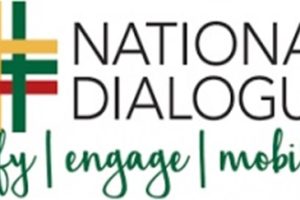
Ethiopia is going all out to ensure stronger and more reliable economic growth and promote peace and stability. Over the past three or four years, the nation has been investing hugely and working untiringly to ensure peace and security throughout the country and accelerate the country’s path to prosperity.
Mainly, following the government’s homegrown economic reform program, concerted efforts have been made with the aim to lay the groundwork and advance the country’s path to development and prosperity by investing hugely.
Equally important, it has done and is still setting the table for peaceful dialogue to discuss disagreements and differences and arrest conflicts through roundtable discussions.
In turn, regardless of the challenges, impressive growths are registered in all areas. It was made possible to expand infrastructure, undertake mega projects and advance the telecommunication, road, energy, tourism, agriculture, and health and education sectors.
In a similar manner, owing to the government’s willingness to work together for the common good, it was made easier in bringing different actors with different views together.
However, despite the progresses made thus far, a number of challenges, primarily issues related to peace and security, are impacting the country’s forward progress and impeding it not to advance at the desired level.
It is clear that resolving disagreements and inconveniences that have lingered for a long period is not a simple task and cannot be solved overnight. Rather, it is a more tiring undertaking that demands more time, energy and especially the readiness and commitment of all actors.
The government has openly shown commitment and made every possible effort to hold successful transitional justice and national dialogue processes with all parties to rectify Ethiopia’s historical shortfalls prevent further conflicts and disagreements and even to avert them before they occur.
By establishing the National Dialogue Commission and putting in place transitional justice policy, the government is striving to address the challenges thereby creating national consensus, fostering unity and understanding, building lasting peace and facilitating Ethiopia’s path to sustainable peace and development.
These days, both the transitional justice and National Dialogue processes of Ethiopia are receiving appreciation by many.
Interestingly, it has been hoped that the National Dialogue is instrumental to overcoming past grievances and setting Ethiopia on a better trajectory.
Both the initiatives are also getting support from development partners, international organizations, including the European Union, UN agencies, international actors, and different countries for the reason, both the National Dialogue and transitional justice are crucial mechanisms to correct historical wrongs, reach national consensus, and ensure peace and development by closing the chapter of disagreements and conflicts.
It is clear that National Dialogue and transitional justice are becoming important tools to sustain peace and security, promote justice and human rights and at the end of the day achieve lasting peace and development.
Mostly, countries where peace, security and stability are at risk due to emerging and persistent challenges, implementing National Dialogue and transitional justice is becoming practicable to end conflict, promote peace, security and development.
The African Union Agenda 2063 also underscores the importance of these ideals as part of the drive towards the ‘Africa-We-Want’.
Currently, Ethiopia has laid the foundation and it is on the right track to hold a successful National Dialogue and transitional justice process. By making the initiatives a success, it will achieve lasting peace and sustainable development.
THE ETHIOPIAN HERALD WEDNESDAY 8 MAY 2024




